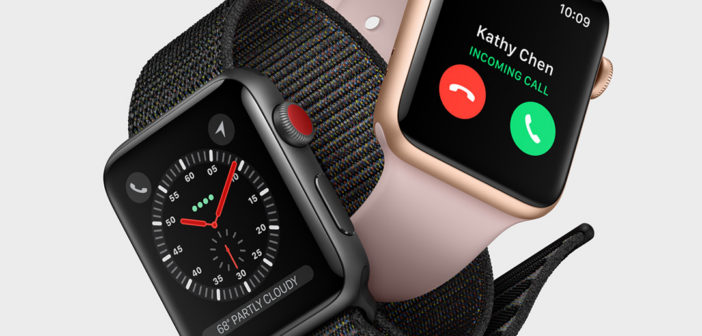Company’s LTE version is a runaway success in Asia
Apple’s smartwatch performed strongly in the second quarter of 2018, with 3.5 million shipped worldwide, 30% more than in the same period last year.
Overall, global smartwatch shipments reached 10 million units on the back of stellar performances by, among others, Fitbit and Garmin, as vendors capitalised on the wearables trend and diversified their portfolios to target distinct customer segments, a new study from Canalys showed. As a result, Apple’s share of the smartwatch market fell to 34% from 43% in the first quarter 2018. Apple Watch shipments to Asia (excluding China,) surpassed 250,000 units, with the LTE version accounting for about 60%. The cellular-connected Apple Watch Series 3 was the best-shipping smartwatch in Asia in the second quarter of 2018.
“Apple’s decision to expand internationally with operators has quickly reaped rewards in Asia Pacific,” said Canalys senior analyst Jason Low. Since the launch of the Apple Watch Series 3, Apple has formed partnerships with operators in Australia, Japan and Singapore, with Thailand, India and South Korea added in the last quarter.
“Operators in these markets are willing to resell connected devices other than smartphones that can help them generate extra revenue from data services. India is a surprising addition to the list of countries. But this is a good strategy by Airtel and Reliance Jio to retain their high value customers in a bid to minimize churn in a cut-throat market,” added Low.
“Apple faces a growing threat from competitors, which have started to pass the million quarterly shipments mark,” said Canalys research analyst Vincent Thielke. “Vendors are trying to differentiate their products with advanced heart-rate metrics, smart coaching and mapping, and consumers now have a much wider range of smartwatches to choose from than they did a year ago. Amid further competition from Samsung and Google, rumoured to be launching Galaxy and Pixel watches respectively, Apple needs to work out how to drive refreshes in markets such as the US, where its penetration into the existing iPhone installed base has started to level off.”





